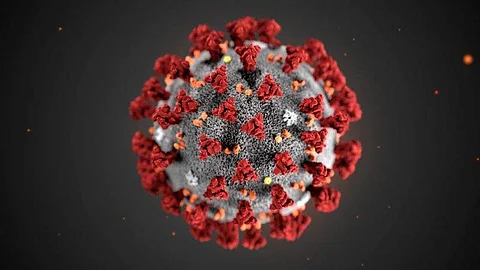

Treatment for COVID-19 with the antimalarial drug hydroxychloroquine, either with or without the antibiotic azithromycin, offers no benefit for COVID-19 patients, according to a large observational study.
The research, published in the journal The Lancet, analysed data from nearly 15,000 patients with COVID-19 who received chloroquine or its analogue hydroxychloroquine, taken with or without the antibiotics azithromycin or clarithromycin, and 81,000 controls. According to the researchers, including Mandeep Mehra from Brigham and Women's Hospital in the US, COVID-19 patients on these drug regimens, experienced an increased risk of serious heart rhythm complications.
The scientists said these drugs should not be used to treat COVID-19 patients outside of clinical trials until results from randomised clinical trials are available to confirm their safety and efficacy for COVID-19 patients. They explained chloroquine, an antimalarial drug and its analogue, hydroxychloroquine, are commonly used to treat autoimmune diseases including lupus and arthritis.
Both these drugs have a good safety profile as treatments for those specific conditions, and the current research said these patients should not stop taking these drugs if they are prescribed for approved conditions. While these drugs have shown antiviral effects in laboratory tests, and are of interest as potential treatments against SARS-CoV-2, the current study has found that they do not benefit patients undergoing treatment for COVID-19.
"This is the first large scale study to find statistically robust evidence that treatment with chloroquine or hydroxychloroquine does not benefit patients with COVID-19," Mehra said. According to Mehra, the findings suggest the drugs may be associated with an increased risk of serious heart problems and increased risk of death.
"Randomised clinical trials are essential to confirm any harms or benefits associated with these agents. In the meantime, we suggest these drugs should not be used as treatments for COVID-19 outside of clinical trials." he said.
In the current study, the scientists analysed data from 96,032 patients hospitalised between 20 December 2019 and 14 April 2020 with laboratory confirmed SARS-CoV-2 infection from 671 hospitals. All of the patients included in the study had either been discharged or had died by 21 April 2020, the scientists said.
They compared outcomes from patients treated with chloroquine alone, hydroxychloroquine alone, chloroquine in combination with azithromycin or clarithromycin, or hydroxychloroquine with one of the antibiotics. Patients from these four groups were compared with the remaining control group of 81,144 patients, the researchers said.
At the end of the study period, around one in 11 patients in the control group had died in hospital, they said. According to the scientists, all four of the treatments were associated with a higher risk of dying in hospital. The team also found that serious irregular heartbeats called arrhythmias, which cause the lower chamber of the heart to beat rapidly, were more common in the groups receiving either of the four treatment regimens.
The researchers said around one in six of those treated with chloroquine or hydroxychloroquine alone had died. When used in combination with one of the antibiotics, the study said the death rate rose to more than one in five for chloroquine, and almost one in four for hydroxychloroquine. According to the study, some of the difference in the rates of mortality is due to underlying differences between patients who received the treatments and those who didn't.
It noted that on accounting for factors like age, race, body weight, and underlying health conditions such as heart disease, lung disease, and diabetes, the drug regimens were associated with an increased risk of death. The excess risk attributable to the use of the drug regimen rather than other factors such as co-morbidities ranged from 34 to 45 per cent, they said. If the rate of mortality is 9.3 per cent in the control group, the scientists said, on adjustment for other clinical factors, the rate attributable to the use of the drug regimens would rise to 12.4-13.4 per cent.
However, they said it is not possible to exclude the possibility of unmeasured factors being responsible for the link. They said this is due to the design of observational studies, and warned that randomised trials are urgently needed to validate the findings. While several countries have advocated use of chloroquine and hydroxychloroquine, either alone or in combination, as potential treatments for COVID-19, the evidence that they help patients recover from the disease is small, the scientists concluded.
"Justification for repurposing these medicines in this way is based on a small number of anecdotal experiences that suggest they may have beneficial effects for people infected with the SARS-CoV-2 virus," said Frank Ruschitzka from the University Hospital Zurich in Germany, who also co-authored the study.
Ruschitzka said, previous small-scale studies have also failed to identify robust evidence of a benefit from these drugs, adding that larger, randomised controlled trials are not yet completed. "However, we now know from our study that the chance that these medications improve outcomes in COVID-19 is quite low," he added.
